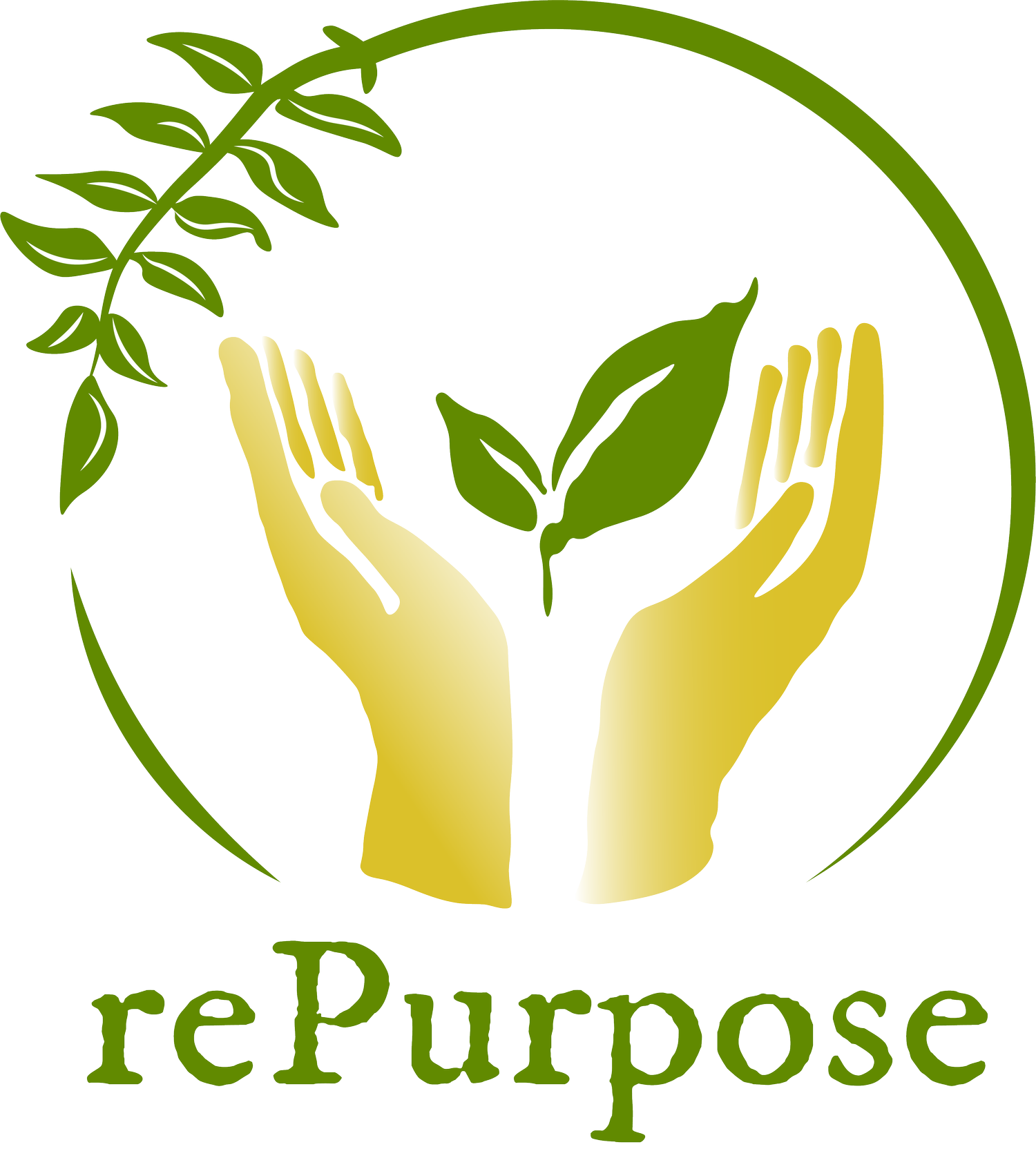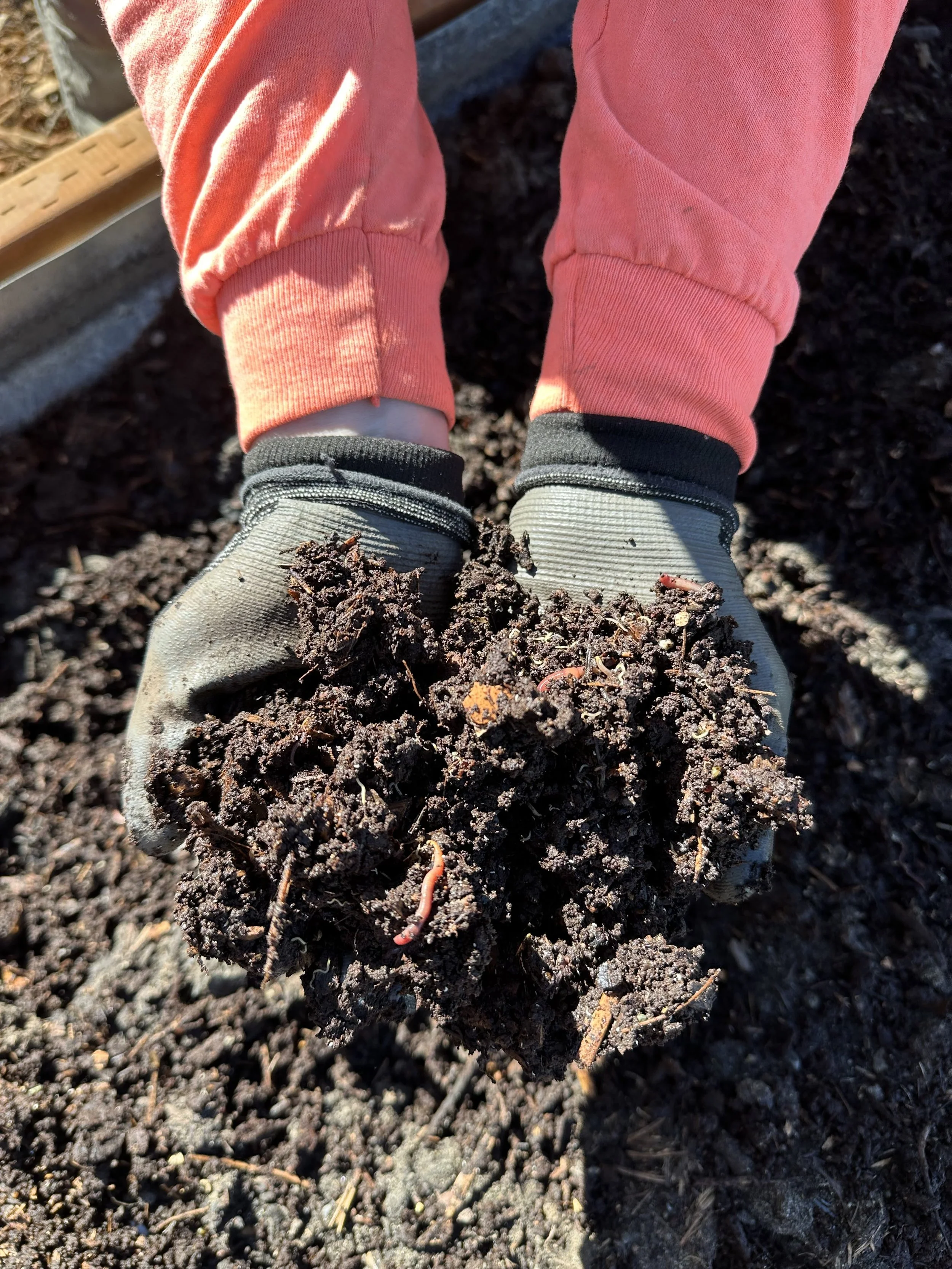Our Composting Process
Bokashi Composting
Process
Bokashi is a Japanese term meaning “fermented organic matter.” It is an anaerobic composting process that utilizes a specific mix of microorganisms to ferment food scraps, including meat and dairy, which are typically not suitable for traditional composting.
In Bokashi composting, food waste is layered in an airtight container with naturally inoculated grain.. The absence of oxygen allows these microbes to ferment the waste, producing a nutrient-rich pre-compost within 10-14 days. In this state, the fermented material is then processed further using vermiculture.
Key Benefits
Bokashi composting offers several benefits, including minimal odor, typically a mild "pickle" scent, and effective pest management by preventing access to waste in an airtight environment. The process is flexible, which allows us to handle a variety of organic materials, including meat and dairy, which traditional vermicomposting cannot. Additionally, Bokashi systems are compact and space-efficient, ideal for small spaces, making it an easy and efficient waste management method.
Continuous Flow Vermicomposting
Process
A continuous flow vermicomposting system is designed to provide a steady, uninterrupted stream of high-quality compost by continuously adding pre-treated food scraps to the top of the bin while simultaneously collecting mature compost from the bottom. This process is facilitated using rotating tines that pull the finished castings down into collection containers, which allows the mature vermicast to be harvested without disturbing the worm population. As a result, the worms remain actively fed and the system operates without disruption, making it ideal for large-scale vermicomposting operations.
Key Benefits
The benefits of a continuous flow system include consistent compost production, as it ensures a steady supply of high-quality compost throughout the year, without waiting for a complete cycle to harvest. The system also maximizes space efficiency by continuously processing material, and because only mature compost is removed, worms are not disturbed, ensuring minimal disruption. Additionally, the system maintains a stable environment with a steady food supply, promoting improved worm health and enabling them to produce high-quality castings.
Environmental Benefits
Bokashi fermentation is a highly efficient method for reducing GHG emissions by preventing the methane production associated with other anaerobic processes. Unlike traditional aerobic composting, which can generate GHGs as organic matter decomposes, Bokashi does not have any significant gas byproduct. The closed-system design ensures that carbon remains trapped within the material, essentially eliminating emissions. Additionally, the process drastically reduces ammonia volatilization, effectively preventing nitrous oxide emissions—a greenhouse gas nearly 300 times more potent than CO₂.
Beyond emission reduction, Bokashi enhances climate resilience by accelerating nutrient cycling. The fermentation process preserves essential nutrients in organic waste, preventing nitrogen loss through leaching or volatilization. When incorporated into soil, the nutrient-rich bio-pulp rapidly integrates with microbial life, enhancing plant growth, water retention, and soil structure. This makes agricultural systems more adaptive to extreme weather conditions such as droughts and heavy rainfall.
Vermicomposting uniquely contributes to climate mitigation by increasing soil organic matter and microbial diversity. The digestive processes of earthworms stabilize carbon in organic waste, converting it into humus-rich vermicast that retains carbon for extended periods. This stable organic matter enhances soil’s ability to sequester carbon while simultaneously eliminating the need for synthetic fertilizers, whose production and use contribute significantly to emissions.
Additionally, vermicomposting improves soil’s physical properties, making it more resilient to climate stressors. The enhanced porosity and moisture retention of vermicompost-enriched soil allow crops to better withstand drought conditions. Furthermore, the increased microbial diversity strengthens soil ecosystems, supporting plant health and eliminating susceptibility to pests and diseases. By integrating vermicomposting into agricultural systems, farmers can reduce their reliance on external inputs, reduce emissions from fertilizer production, and cultivate land that is more adaptable to climate variability.



